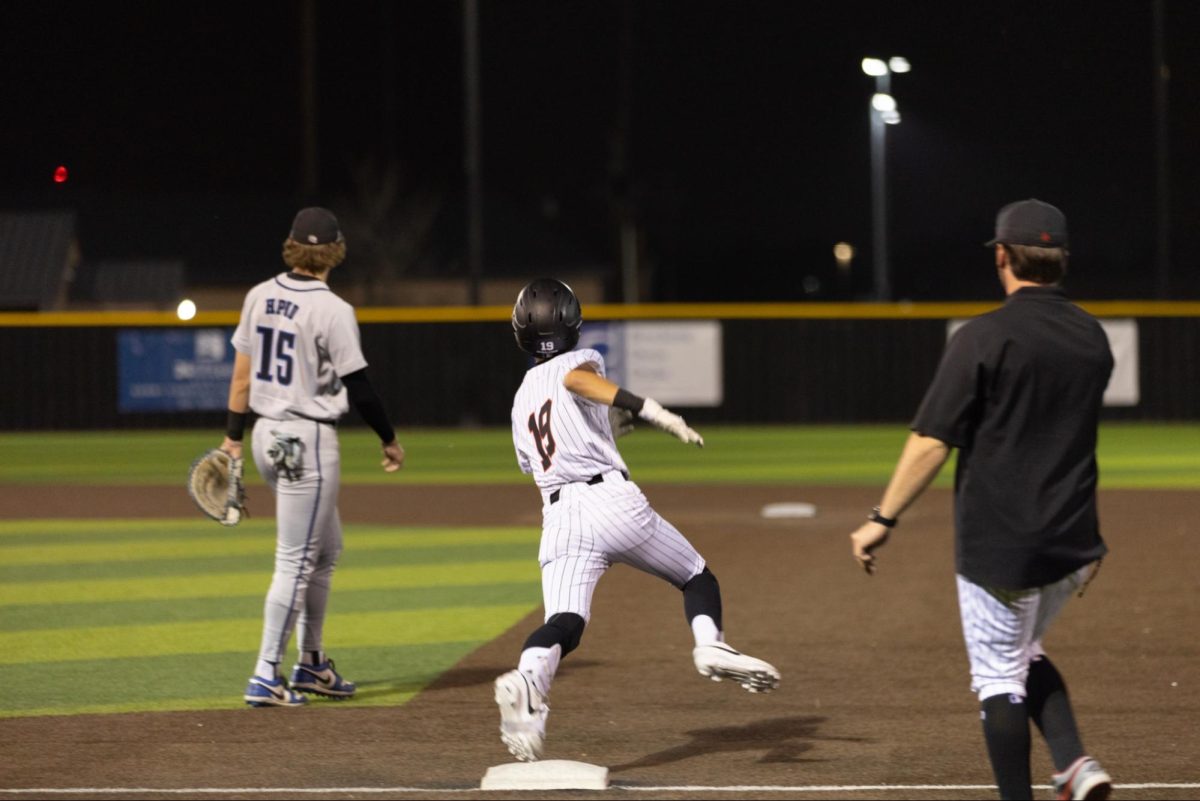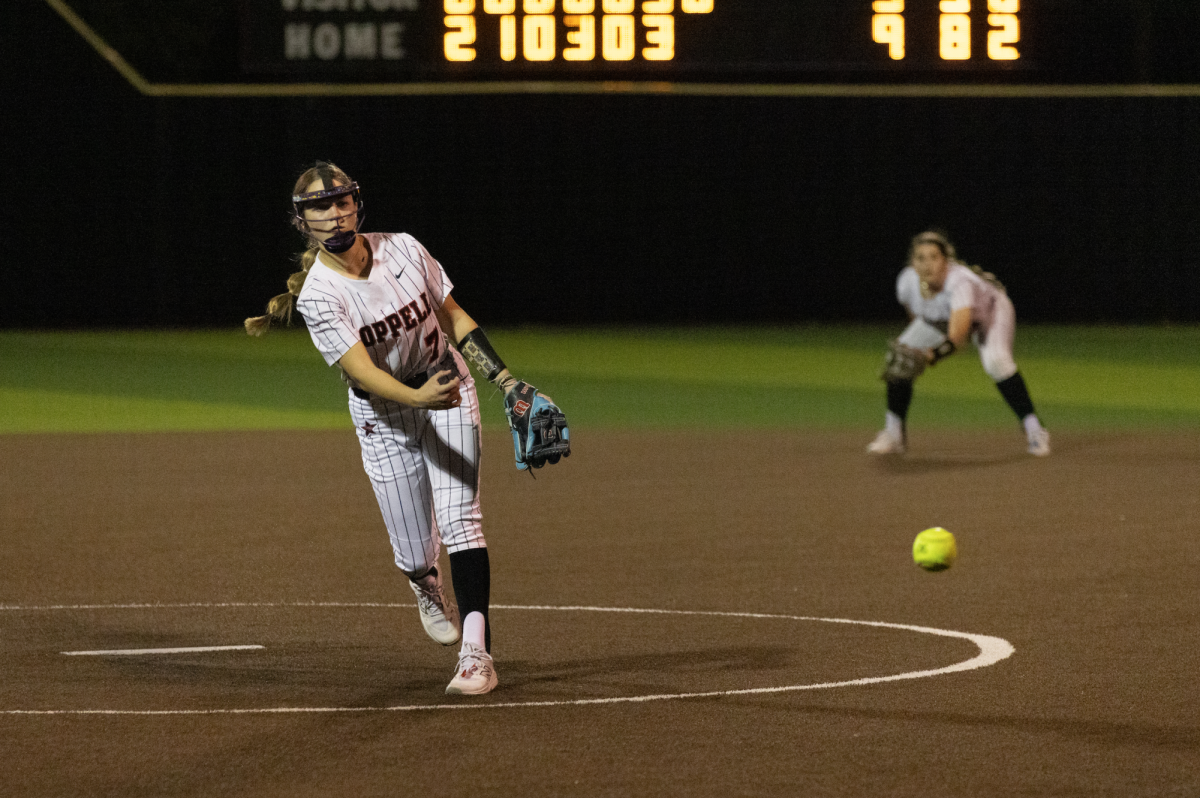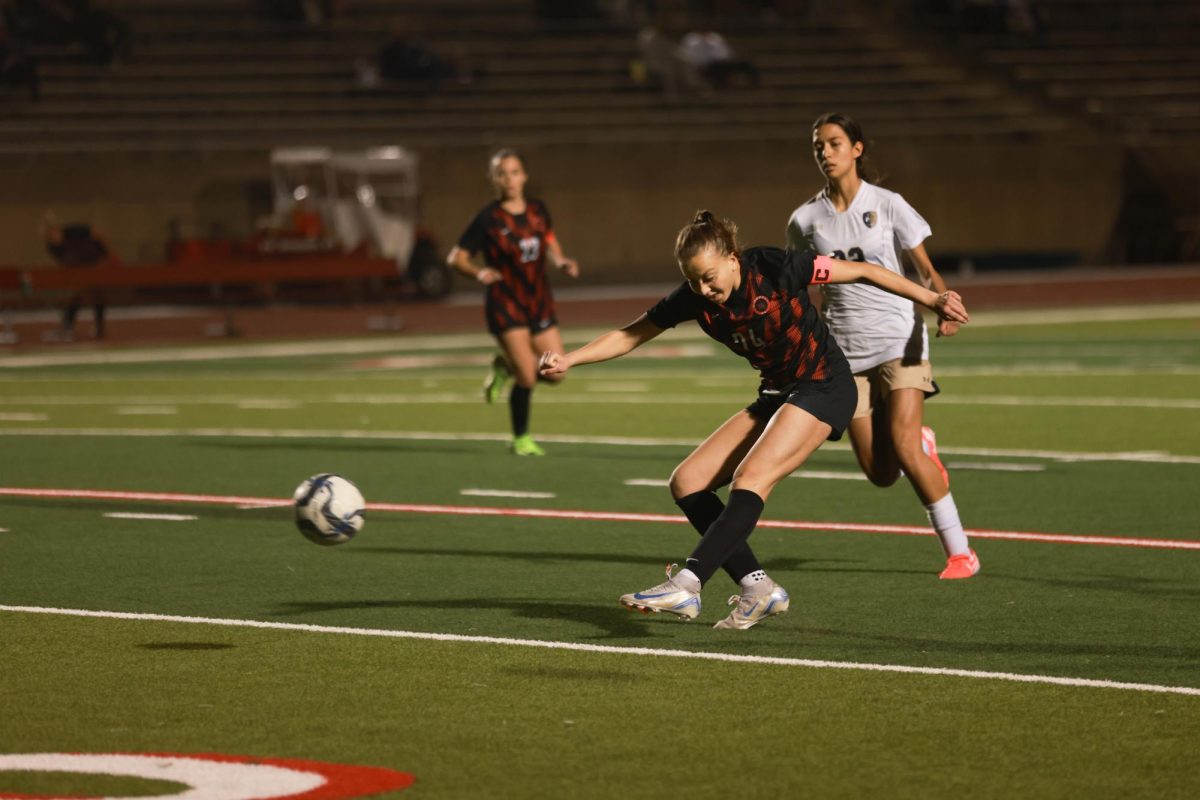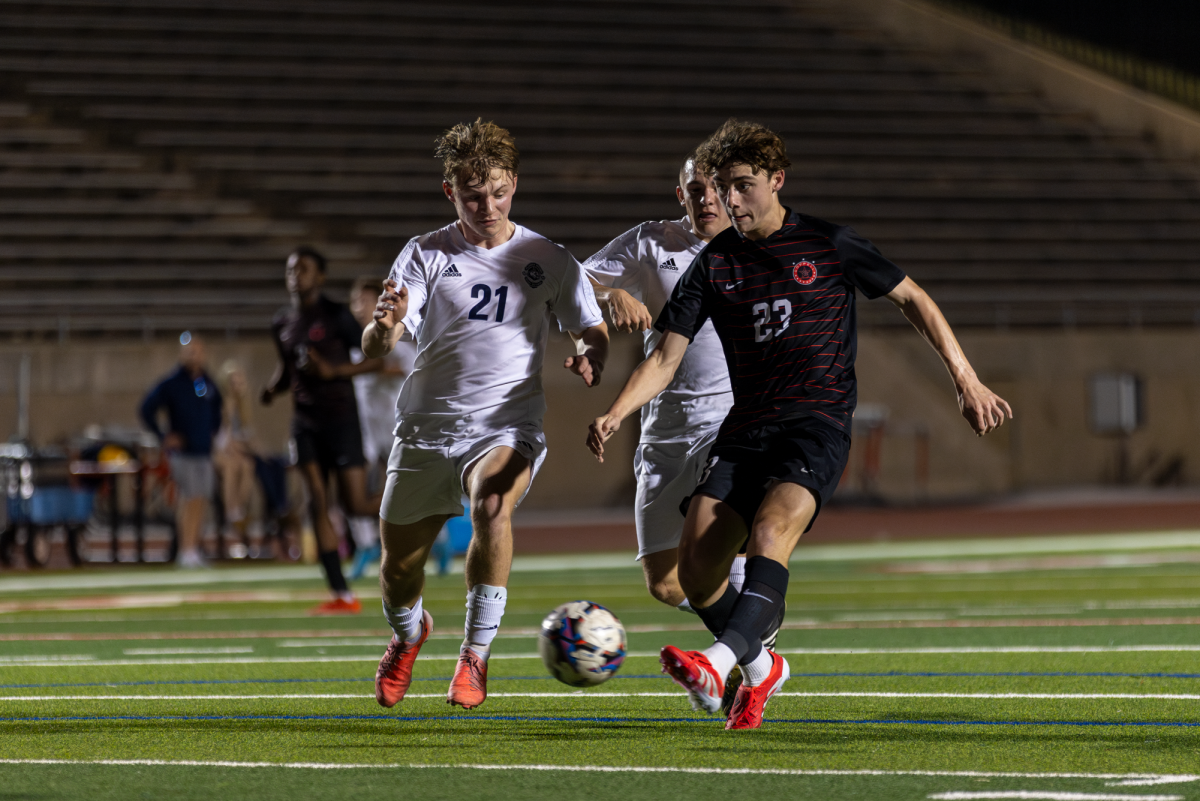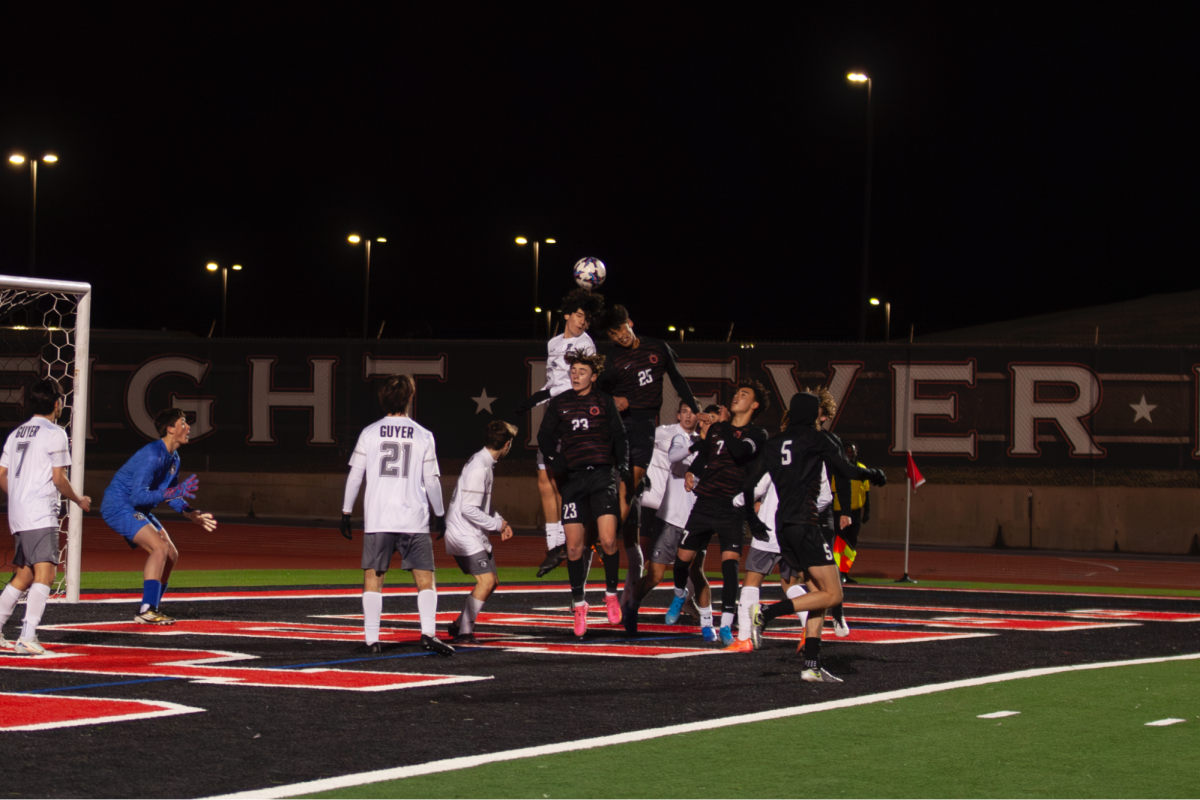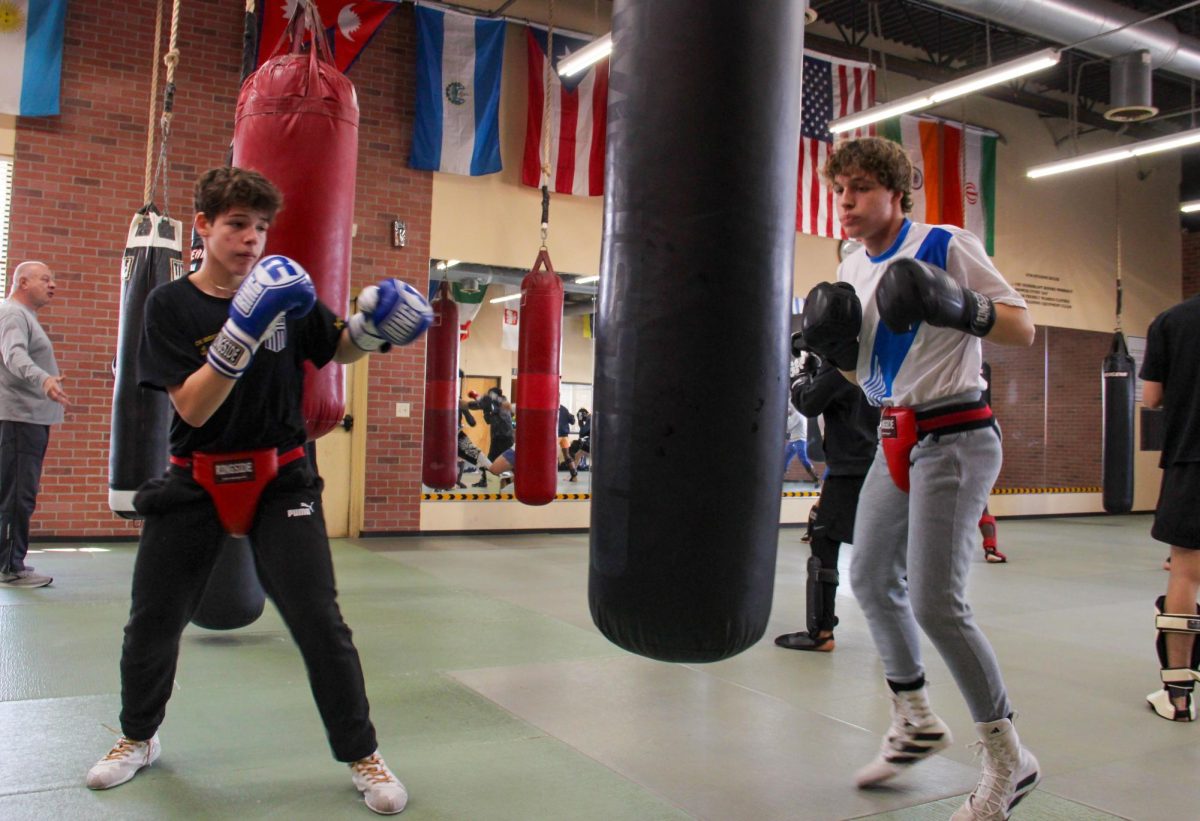by Blake Seitz
Sports Editor
Religion, no matter the creed, has the tendency to become entwined in all areas of life, from politics to personal finances.
The same holds true for athletics, where faith plays an integral role in a number of things, from strengthening the believer to shaping his or her priorities.
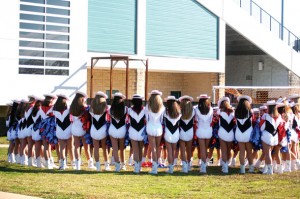
The following stories highlight a number of ways religion affects athletes on the playing field.
Strength
As Coppell’s running back, junior Cam McDaniel embodies physical strength: with a max bench press of 215 pounds and a 40-yard dash of 4.53 seconds, he can run around—or through—just about anyone on the football field.
That’s not what makes him strong, though.
“God and his Word are my bread of life,” McDaniel said. “Just as people can’t go long without food, the spirit can’t either—God’s Word helps me get through the day.”
Although you wouldn’t know it from the stands, McDaniel is a devout evangelical Christian. He uses his faith and the message of the Bible as a motivator.
“Old Testament characters inspire me,” McDaniel said. “Men like Joseph, who went from being a slave to being the second-hand man in all of Egypt. It just shows that if you believe that all things are possible through God, amazing things can happen.”
The results of McDaniel’s faith are visible, both on Friday nights at Buddy Echols Stadium as well as every day in the halls during the school year.
Needless to say, he attracts the attention and commands the respect of his teammates through his actions.
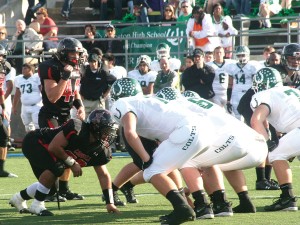
“Cam strengthens himself by reading verses,” senior defensive lineman Naveed Amirhekmat said. “His faith is really solid—it helps him never give up on the field.”
McDaniel is just one of many athletes using faith as a guide and source of strength.
Junior Danielle Herubin plays midfield on the varsity soccer team and club team, the D’Feeters.
Herubin, a Roman Catholic, uses prayer to settle herself “when she’s nervous,” but thinks that prayer—and faith—are more effective when practiced as a team.
“[My team] plays for each other and for God, and we try not to get wrapped up in worldly stuff,” Herubin said.
Herubin’s club team prays before games, beginning with a team-specific prayer and following up with a recitation of the Lord’s Prayer.
Non-Christians also use prayer as a source of strength.
“Usually after warm-ups I go to the corner of the field to talk to God and say a few verses just like any other Christian would do,” Amirhekmat said.
Sacrifice
Senior Reihaneh Hajibeigi strikes a unique figure on the soccer field when she plays with her club team, the Dallas Texans.
As other girls mill around on the field, their exposed arms and legs slicked with sweat from the 100-degree Texas heat, Hajibeigi is mostly concealed by the hijab, or headscarf, and long sleeves of the conservative Muslim faith.
Hajibeigi chooses to dress modestly in public because Islam dictates women should veil all but their face and hands in the presence of possible husbands.
“A lot of people see the hijab as a sign of oppression, but it’s really not,” Hajibeigi said. “Nowhere in Islam does it say to cover the whole body with a burqa. The hijab is a sign of respect for my religion and nothing else.”
On the soccer field, though, and in oftentimes sweltering heat, some referees have told Hajibeigi to remove her headscarf and sleeves for safety reasons.
For Hajibeigi, this is an unacceptable solution.
“It does get hot, but taking it off is not an option,” Hajibeigi said. “It is painful—I’ve gone to tournaments where it’s 102, 103 degrees—but the value I get from it is worth a lot more.”
Hajibeigi sacrifices even more during the month of Ramadan, a time of fasting and self-restraint which occurs on the ninth month of the Islamic lunar calendar.
Ramadan, which requires Muslims to forgo food and drink from sunup to sundown, presents a peculiar problem to Muslim athletes like Hajibeigi and Amirhekmat.
Just like with the hijab, however, there is a general consensus that tradition is too important to be overridden.
“Ramadan is a month of self-actualization to make changes,” Hajibeigi said. “It’s more than just closing your mouth and not eating for the day.”
Their decision, however, comes with the deadly serious risks of dehydration and fatigue.
“When we played against Highland Park, by halftime I was so tired I got confused about where I was,” Amirhekmat said.
With these risks in mind, coaches often strike deals with their Muslim players.
“[Reihaneh and I] have an understanding,” Dallas Texans coach Jimmy Lankford said. “She does play, but she’ll dehydrate quickly. It’s tough on her, so we limit the time she can be out on the field.”
Outreach
Many athletes have come to see their sport not only as a presentation of their physical abilities but also of their character. Seeing themselves as representatives of their respected faith, they place themselves in positions where their actions can be seen—and hopefully mimicked—by those around them.
One such athlete is McDaniel, who is a leading member of FCA and is vocal about his beliefs on the football team. He often prays with teammates before games.
“Football is a game—it’s just a game,” McDaniel said. “My goal in life is to be a winner of lives, and use my position to reach others.”
Another is senior Lariette Shelby Samuels. Samuels was chosen to be team chaplain at the beginning of the season. She leads a group prayer before every halftime performance and chooses a Bible verse to laminate and distribute to the squad every week.
“I’m thankful for my position,” Samuels said. “If I can show what I believe and how I act, maybe I can get some of the other girls to focus their lives on that as well.”
McDaniel and Samuels’ beliefs are at odds with the stereotypical image football players and dancers. They are eager to use their visibility to combat this stereotype from the inside out.
“Athletes claim all the time that they’re Christian and then go attend parties on Saturday night,” McDaniel said. “Nonbelievers look at that and say ‘how does that make them any better than me?’ I try not to do that stuff. It’s all about walking the walk.”
For others, representing the faith is not so much about visibility as it is about the small things.
“When people see me, they see a Muslim person,” Hajibeigi said. “I know the way I act reflects not only on me but on my religion. I take my morals and principles with me on the field.”
This is especially important, because oftentimes opposing players leave their principles on the sideline during the game.
“In eighth grade I had a player tell me to go back to my country,” Hajibeigi said. “People don’t expect me on the soccer field. I hear the whispers and see the dirty looks, but I hold my head up. My faith is what makes me unique.”
Whether it’s about spreading the Gospel or just about making it through a tough fourth-and-one, it’s clear that CHS athletes are leaving it all—faith included—on the field.



